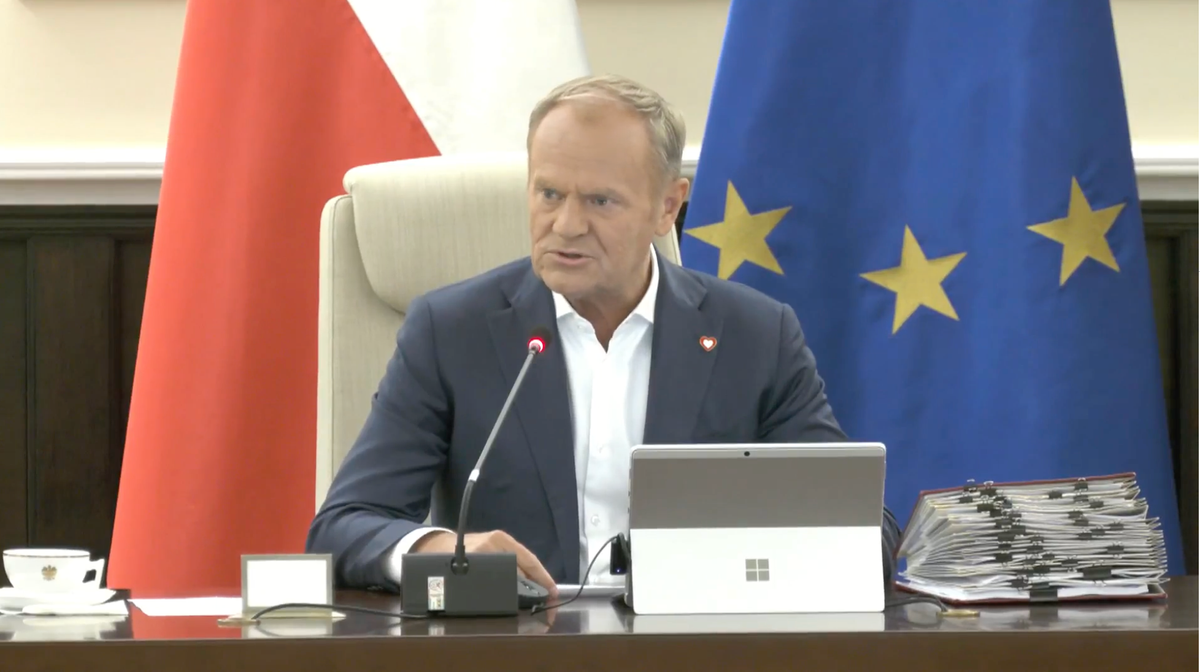
Poland's EU presidency under review: efficient but cautious
Poland concluded its six-month Presidency of the Council of the EU on 30 June with a EUR 150bn defence investment package and reinforced security coordination.
Achievements, thematic priorities
Leading with the slogan “Security, Europe!”, Poland’s presidency focused heavily on defence. “Security is not a seasonal agenda - it’s our shared European obligation,” Polish Foreign Minister Radoslaw Sikorski said as the presidency was drawing to a close on 28 June.
Key deliverables included the Strategic Technologies for Europe Platform (STEP), East Shield funding eligibility, three rounds of Russia sanctions and progress on Montenegro's EU accession.
Poland secured rapid agreement on the EUR 150bn STEP - also known as SAFE - to boost joint defence investment. Another achievement was establishing co-financing eligibility for its East Shield and Baltic Defence Line as EU-interest infrastructure.
On the diplomatic front, Poland oversaw the closure of Chapter 5 on public procurement in Montenegro’s EU accession talks, with the Polish Permanent Representation calling it “a key step on the EU path” on 28 June. Additional rounds of sanctions against Russia, the publication of the EU-UK defence partnership, and the EU White Paper on Defence Readiness 2030 were also finalised.
Poland likewise facilitated progress on food security, simplifying reporting frameworks and launching the Competitiveness Compass and Clean Industry Deal.
Legislative delivery
Poland maintained momentum across several strategic dossiers but stopped short of major breakthroughs. The Polish presidency steered trilogues on Strategic Compass implementation and military mobility frameworks, the European Parliamentary Research Service (EPRS) recalled in a 30 June briefing.
However, most progress was procedural, and Carnegie Europe described the presidency as “technocratic and efficient, but ultimately cautious” in its 1 July review.
Environment and health
The European Environmental Bureau (EEB) welcomed continuity on climate and pollution coordination but criticised what it saw as weak leadership on circular economy legislation and chemical safety in its 1 July presidency assessment.
Public health campaigners such as HEAL Poland acknowledged environmental health discussions during Council meetings, but noted a lack of enforceable action on cross-border pollutants in a statement released on 30 June.
EU alignment, external praise
Poland’s security-first approach nevertheless resonated in the EU. A Eurobarometer survey released on 21 May found that 64% of EU citizens considered defence and security the EU's top priority.
Poland’s emphasis on border control, cyber preparedness and energy independence also aligned with predominant concerns for governments in Central and Eastern Europe (CEE), although some criticised its policies as overlapping with NATO functions.
European Commission President Ursula von der Leyen praised the presidency’s “bold defence focus and paradigm shift”, while European Council President Charles Michel called it “coherent and consequential” in statements delivered at the Brussels summit on 28 June.
Domestic constraints
Poland’s presidency unfolded amid political turbulence at home. In May 2025, conservative Karol Nawrocki narrowly defeated centrist Warsaw mayor Rafal Trzaskowski in the presidential runoff, winning 50.89% of the vote to 49.11%.
The result saw the continuance of veto power in the hands of a Law and Justice (PiS)-backed figure, while Polish Prime Minister Donald Tusk’s big–tent Civic Coalition (KO) retains control of Parliament.
The divided domestic scene prevented Poland from presenting a unified voice on judicial reform and the rule of law, over which the PiS government had long clashed with EU institutions and drawn multiple infringement procedures.
Handover to Denmark
As Poland handed the EU presidency to Denmark on 1 July, Tusk announced that Poland would restore temporary checks along its borders with Germany and Lithuania, as of 7 July. “The more the Polish state regains control at the borders, the more it is attacked by PiS, the Confederation and their militants,” Tusk wrote on X the following day.
Denmark has pledged continuity on defence and enlargement while broadening the EU presidency's focus to climate competitiveness and institutional transparency.
“We put security back at the heart of the European project,” Sikorski said in closing remarks in Warsaw on 28 June.
